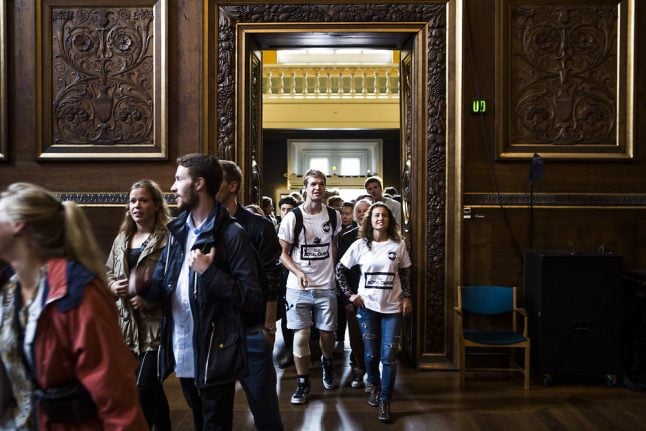EDUCATION
Denmark backs off controversial ‘education cap’
When the Danish parliament in December passed a bill barring students from taking a second university degree, the move was greeted by protests and accusations that the move to meant to free 300 million kroner to shore up funding in the unemployment benefit system was “short-sited”.
Published: 31 January 2017 10:34 CET

A second degree can now be pursued six years after obtaining a first. Photo: Simon Læssøe/Scanpix
The government has now made significant adjustments to the so-called ‘education cap’ that will allow people to take a second degree after all.
Higher Education Minister Søren Pind was scheduled to announce on Tuesday morning that students will from here on out be allowed to take a second education if it is started at least six years after their first degree was obtained.
The bill originally restricted individuals who already have a higher education degree from pursuing a degree in another field at the same or a lower level.
Critics of the policy have argued that limiting students' abilities to change their course of studies can lock them in to poor choices and limit their future employment possibilities. Nearly 80,000 Danes signed a petition protesting the bill, arguing that it would not only leave “thousands of students […] stuck in an education in which they can't see a future” but also rob society of future skilled workers.
The parties behind the bill have now agreed to allow students to take a second degree six years after they’ve received their first.
When the original bill was passed, it was reported that up to 2,200 students would be impacted annually but that around 30 percent of those would be able to qualify for a dispensation for either health reasons or because their first education has become obsolete. The government also established a so-called ‘positive list’ of 25 educations that would not be affected by the cap.
Broadcaster DR reported that under the adjusted rules the positive list would remain in affect, meaning that those fields of study would not be subject to the six-year waiting period.
Url copied to clipboard!


 Please whitelist us to continue reading.
Please whitelist us to continue reading.
Member comments